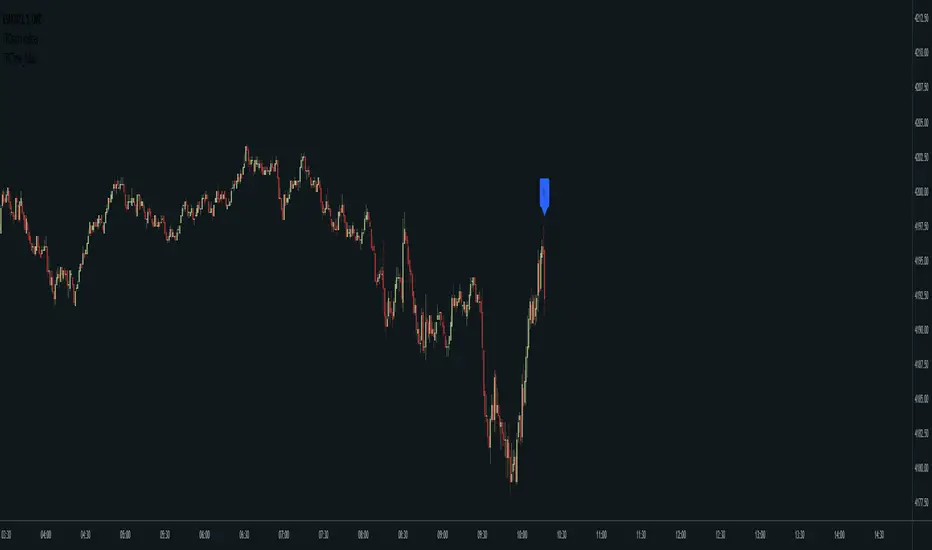PINE LIBRARY
Updated TPCTime_Public

Library "TPCTime_Public"
Helpers for calculating time
getTimeOffset(interval, amount) Returns the length in ms for the given amount of the given interval.
Parameters:
interval: Interval to calculate, for example "D" or "60".
amount: Number of intervals for which to calculate the time range in ms.
Returns: The number of ms in the amount of the given interval.
isInTimeRange()
Helpers for calculating time
getTimeOffset(interval, amount) Returns the length in ms for the given amount of the given interval.
Parameters:
interval: Interval to calculate, for example "D" or "60".
amount: Number of intervals for which to calculate the time range in ms.
Returns: The number of ms in the amount of the given interval.
isInTimeRange()
Release Notes
v2Added:
getPeriodAsMs()
isChildPeriod()
Updated:
getTimeOffset()
isInTimeRange()
Release Notes
v3Release Notes
v4Added:
getHumanDayOfWeek(timestamp, isShort, isWrap, startWrap, endWrap)
Returns the human-readable day of week for the given time.
Parameters:
timestamp: The UNIX timestamp for which to return the day of the week.
isShort: Whether to return a short date, e.g. "Mo" instead of "Monday"
isWrap: Whether to wrap the date, e.g. placing it inside characters such as brackets to result in [Mo]
startWrap: Start wrap character, e.g. an opening bracket.
endWrap: End wrap character, e.g. a closing bracket.
Returns: The number of ms in the given period.
Release Notes
v5Added:
isInTimeRangeFromCurrentTime(period, periodCount)
Returns true if the current time is greater than or equal to the given periodCount of periods, else returns false.
Parameters:
period (string): Period to calculate with, for example "D" or "60".
periodCount (int): Amount of given periods to test.
Returns: True if the current time is greater than or equal to the given periodCount of periods, else returns false.
Pine library
In true TradingView spirit, the author has published this Pine code as an open-source library so that other Pine programmers from our community can reuse it. Cheers to the author! You may use this library privately or in other open-source publications, but reuse of this code in publications is governed by House Rules.
Disclaimer
The information and publications are not meant to be, and do not constitute, financial, investment, trading, or other types of advice or recommendations supplied or endorsed by TradingView. Read more in the Terms of Use.
Pine library
In true TradingView spirit, the author has published this Pine code as an open-source library so that other Pine programmers from our community can reuse it. Cheers to the author! You may use this library privately or in other open-source publications, but reuse of this code in publications is governed by House Rules.
Disclaimer
The information and publications are not meant to be, and do not constitute, financial, investment, trading, or other types of advice or recommendations supplied or endorsed by TradingView. Read more in the Terms of Use.